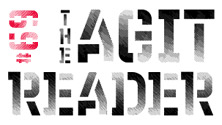
Juju
Geffen, 1981
I don’t know when exactly goth turned into the cartoonish dalliance that it is today (though I’m sure some blame can be laid at Marilyn Manson’s feet), but there once was a time when the genre still had music of substance, stuff with real teeth and not merely vampirish facsimiles. The tag denoted an aesthetic instead of just a certain amount of eyeliner and pancake make-up, and subtlety was valued far more than shock.
Ascending from punk hanger-on to a royal-like position among the goths, Siouxise Sioux epitomized that aesthetic while at the same time applying it in multiple manners. Heading her Banshees, she juxtaposed mythic allusions with a sense of the macabre, creating an ouevre that swung between harrowing and near celebratory, emotionally wrought and coolly detached. While Siouxsie and the Banshees may have garnered the greatest commercial success in their later days, it was the records they made mid-career that best combined artistic ambitions and realized verve. Released in 1981, their fourth album, Juju, stands among their best. With former Magazine guitarist John McGeoch joining the Banshees core of Sioux, drummer Budgie and bass player Steven Severin, the album placed the darkened brooding of their previous work in a sonic vortex of swirling guitars, sparkling melodies and propulsive rhythms.
Juju leads off with “Spellbound,” a dizzying whir of dervish undertones and brisk drumbeats highlighting the single. The following track, “Into the Light,” is less robust, but McGeoch’s specter guitar riff gives the song a jagged edge that’s cuts to the quick and meshes with the sense of desperation Siouxsie puts forth. “Arabian Knights” and “Halloween” further emphasize the album’s mysterious air, with Sioux singing lines like “I wear my memories like a shroud” on the latter that seem more literary than vampy.
On the record’s second side, McGeoch again shows his prowess, a jigsaw guitar line slicing through “Nightshift.” It is here that Sioux is at her most vehement, commanding, “Fuck the mothers, kill the others. Fuck the others, kill the mothers.” On “Sin In My Heart,” it is Budgie’s frantic drumming that whips up some dust, the song gaining momentum figuratively as it does so literally. “Voodoo Dolly,” the record’s most plodding and minimal cut, it also its creepiest, Sioux, over the course of an increasingly strange seven minutes, tapping into a demonchild character of sorts.
Juju is one of several peaks to which the Banshees climbed, but is perhaps the highest. The band manages drama without being melodramatic, and the album is as piercing for its sound as for its thematic content. Every twist of Siouxsie’s voice is equally complimented by the band’s brash charge, and they create tension and mood just by playing the right notes. That the record sounds neither dated nor contrived is further testament to the purity of the Banshees’ allure.
Stephen Slaybaugh
PAST PERFECTS
Where the Action Is! Los Angeles Nuggets 1965-1968
Big Star, Keep an Eye on the Sky
Sunny Day Real Estate, Diary and LP2
The Feelies, Crazy Rhythms and The Good Earth
Thrasher Magazine's Skate Rock Volume 1
39 Clocks, Pain It Dark
The Stone Roses, The Stone Roses
The Jayhawks, Music from the North Country
Ze 30: Ze Records 1979–2009
24-Carat Black, Gone: The Promises of Yesterday
Beastie Boys, Ill Communication
Book of Love, Book of Love, Lullaby, Candy Carol and Love Bubble
The Scene Is Now, Total Jive
REM, Reckoning
